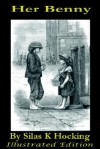Currently reading
The Lonely Sea: Collected Short Stories
Her Benny
Vedere din Parfumerie
Mysticism and Logic (Western Philosophy)
The Analects of Confucious
Pragmatism: A New Name for Some Old Ways of Thinking
Does Anything Eat Wasps?: And 101 Other Unsettling, Witty Answers to Questions You Never Thought You Wanted to Ask
Mutual Aid
City of Djinns: A Year in Delhi
The Brothers Karamazov
The Royal Readers
 I have no idea how common these little readers were, in schools or wherever, although I do know that Thomas Nelson was recently the largest publisher of Bibles in the world.
I have no idea how common these little readers were, in schools or wherever, although I do know that Thomas Nelson was recently the largest publisher of Bibles in the world. I've somehow made it through most of volume V, including the poems and several accounts of pointless battles.
I don't know of any publisher who prepares readers of this variety and reading difficulty anymore. I may be getting too old to read so many short pieces on wildly different topics, although I'm badly out of practice reading magazines.
I started looking for patterns. Here are some: excerpts of battles exclusively where the peerless English won, except for a sad poem about Poland's partition or two. Might be explained by the fact that these books were printed in England, but I thought Thomas Nelson came from the southern U.S.
Lots of Scottish references, possibly inspired by the Scottish influence in the southern U.S. Perhaps every poem Thomas Cambell ever wrote is here, and generally it's not to his credit. Longfellow, however, has written some astonishing stuff, including something called "The Slave's Dream," which ends with a metaphor regarding a chain which is so evocative that chain references pepper every other excerpt. Christopher Columbus, for example, was buried with his old prison chains, per his request. Perhaps it was a throwback to Bronze Period, when, so this reader says, soldiers were buried with their swords broken, to symbolize a well-deserved rest.
Crazy stuff about settlement of Pennsylvania taking place without Quakers in conflict with "Penn's Children", the Native Americans. Wikipedia informs me that George Washington may have mistakenly wiped out just one of Pennsylvania's extinct tribes, in mistaken retaliation after colonist troops were massacred there. The Brits were recruiting Native warriors in the Revolutionary War, something one parliamentary speech here rages against. I almost suspect that the British mindset caused most of the Native massacres, but given the British background the colonists brought with them, that would be a truism.
The apparent opposite is Virginia, which was apparently settled by notorious scoundrels (well, that could included Walter Raleigh himself) and kept seeing its settlements decimated. Apparently, most prominent Virginians can still trace their heritage to the son of Pocohontas, which makes the fact that Donald Trump has been using "Pocohontas" as an insult all the more ridiculous.
A story about the "Mayflower". Who knew that the pilgrim Puritans lived for more than a decade in Holland before heading out to sea? Can it really be true that the U.S. is Puritanical just because the Pilgrims arrived on the east coast first?













